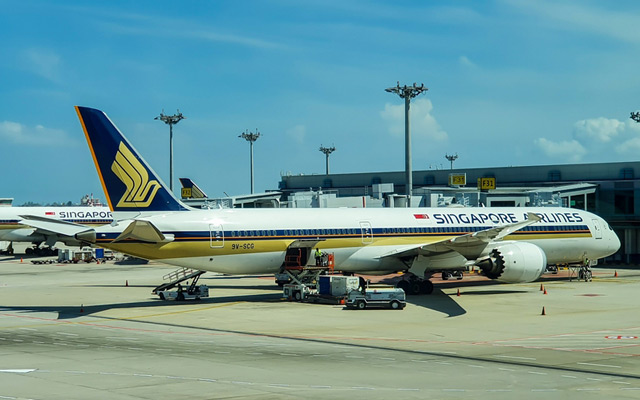The Civil Aviation Authority of Singapore’s sustainable air hub blueprint has spelt out plans to implement compulsory sustainable aviation fuel (SAF) usage on flights departing from the city-state from 2026.
This is part of efforts to progressively decarbonise airline operations.

The announcement was made by transport minister Chee Hong Tat at the Changi Aviation Summit on February 19.
Singapore will aim for a one per cent sustainable aviation fuel uplift target in 2026, and three to five per cent by 2030 – subject to “global developments and the wider availability and adoption” of SAF in the next few years, Chee told the press.
As a result, passengers flying from Singapore can expect to pay more for their air tickets due to the fuel levy attached. An economy class ticket from Singapore to Bangkok, Tokyo and London could go up by around S$3 (US$2), S$6, and S$16 respectively.
More details on the implementation will be shared in the future.
Glenn Thorsen, global sustainability lead of FCM Consulting, said that this initiative is similar to the ones being rolled out in Europe, although the execution is slightly different.
“KLM, for example, already have an SAF fee on their tickets which is designed to cover the cost of 0.5 per cent SAF for a given flight. The European Union has also just formally agreed to the RefuelEU initiative which will mandate two per cent SAF on all EU flights starting in 2025.
“Given the increasingly global application of this approach, we don’t believe it will have a decidedly negative impact on demand for business travel, and the slated time frames of 2025/26 for implementation also leaves room for potential amends to these initiatives in the meantime,” he explained.
Thorsen added that this was a “much better initiative than offsets”, as it has a “genuine reducing impact on aviation emissions”.
“It’s also great as it helps to stimulate demand, increase supply and provide security on the growing market for new innovators to continue to emerge and increase the availability and affordability of SAF,” he added.





















